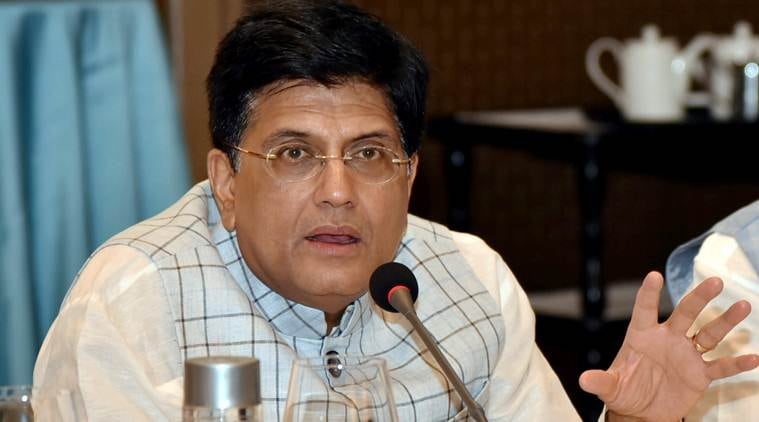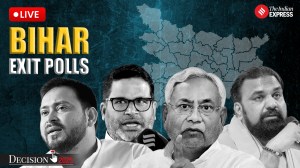Piyush Goyal: Nations must have ‘sovereign right’ to use data for people’s welfare
Goyal pointed out need for clarity on issues like privacy and security before making rules on e-commerce, adding that this is why India does not support joint initiative on e-commerce 'at this stage'.
 Union Minister for Railways, Commerce and Industry, Piyush Goyal at a meeting in New Delhi. (Source: PTI Photo)
Union Minister for Railways, Commerce and Industry, Piyush Goyal at a meeting in New Delhi. (Source: PTI Photo)
Countries must have the “sovereign right” to use their data for welfare of people and advocacy on free trade should not necessarily justify free flow of data, said Commerce Minister Piyush Goyal during the two-day Group of 20 ministers’ meet in Japan. He pointed out need for clarity on issues like privacy and security before making rules on e-commerce, adding that this is why India does not support joint initiative on e-commerce “at this stage”.
“With growing Internet usage domestically, an enormous amount of data is being generated in the country. This includes personal, community and public data, and countries must have the sovereign right, to use their data, for the welfare and development of its people,” stated Goyal.
The digital divide within and across nations is a “serious impediment” for developing countries to benefit from digital trade, and capacity constraints in developing countries require timely support of training and creation of a digital infrastructure, he said. “This is important, for facilitating a level playing field, in the digital economy, for all countries to take equitable advantage of data free flows. Developing countries need time and policy space to build deepest understanding of the subject and formulate their own legal and regulatory framework before meaningfully engaging in e-commerce negotiations,” Goyal stated. India’s draft e-commerce policy restricts storage of data collected here outside of the country.
During the speech, Goyal emphasised the need to preserve the fundamental principles and objectives of the World Trade Organization, including the Special and Differential Treatment mechanism and consensus based decision making, amidst an “abrupt push” to alter rules of the institution. “The concerns of all member countries must be accommodated,” he said, adding that the reform process should begin with reviving WTO’s dispute settlement mechanism.
He further raised concerns that joint initiatives formed outside WTO with no mandate had set an “unhealthy” trend of influencing rulemaking within the organization. “I am suggesting we must collectively look at mainstreaming these discussions in the WTO after informal consultations. The G20 should commit to support only WTO consistent rules and avoid creating insurmountable goals,” he stated. Goyal also sought preferential market access for developing country’s micro, small and medium enterprises to be part of global supply chain to promote investment.
Trade and digital economy ministers participating the G20 discussions this year exchanged views on various issues, including the concept of data free flow with trust, WTO discussions on e-commerce and the need for capacity building.
They stated that challenges related to privacy, data protection, intellectual property rights and security needed to be addressed in facilitating data free flow. It is also necessary that both domestic and international legal frameworks “should be respected”, they said.



- 01
- 02
- 03
- 04
- 05




























